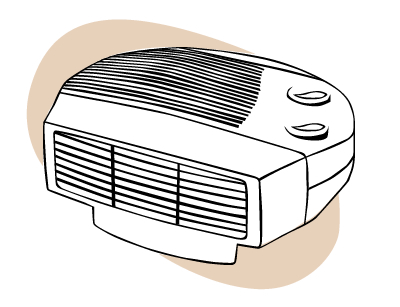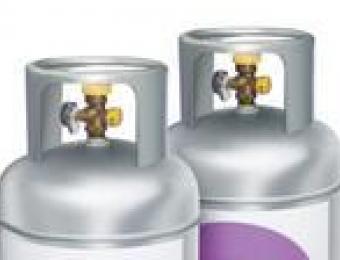These days, electricity is by far the most common fuel for residential heaters. It’s a 'clean' fuel source in that there aren't any fumes or debris like there are with gas and solid fuels (although exactly how clean they are obviously depends on the fuel source for the electricity in the first place). Electric heaters are also relatively safe, are available very cheaply, and can be installed anywhere there is access to electricity.
Electric heating works by converting electrical energy to heat. The source of the heat is typically an electrical resistor, which heats up as an electrical current is passed through it. The heat from the elements in an electric heater is either radiated (as is the case with electric bar heaters) or forced out as hot air using a fan (as with convection fan heaters).

How efficient is electric heating?
Electricity is a mixed bag in terms of efficiency. Heating using a reverse-cycle air conditioner is quite efficient in terms of the energy used, but most other heaters that use electricity are very inefficient. The cheaper the electric heater, the less efficient it's likely to be. On average, electric heaters are responsible for about three or four times as much CO2 as gas heaters that produce the same amount of heat.
As with many other appliances, electric heaters are subject to Minimum Energy Performance Standards (MEPS) in Australia. MEPS are one way the government ensures a minimum standard of efficiency and quality in Australia.
Weighing the costs
Electric heaters offer hassle-free, quick heat, and they're very cheap to buy, but you should be careful when weighing up your options. Electric heaters are already one of the more expensive types of heaters to use, and electricity prices are set to rise fairly dramatically in the near future.
The type of electric heater you choose will make a massive difference to the amount it will cost to use. For the cost it takes to run a small radiant bar heater, for example, you could effectively heat your entire house using a zoned reverse cycle central heating system. The temperature at which you set the thermostat makes a difference too. For every degree above 21 degrees celsius when using a traditional electric heater, you're likely to be paying an extra 10 percent in terms of electricity.
Hassle free heating
The biggest advantage to using electricity for heating is the convenience. With most types of electric heaters the heat is instant, and the heater can be placed just about anywhere you can find a power point. They're available in many different shapes and sizes, and in styles to suit just about any decor.
|
Advantages
|
Disadvantages
|





